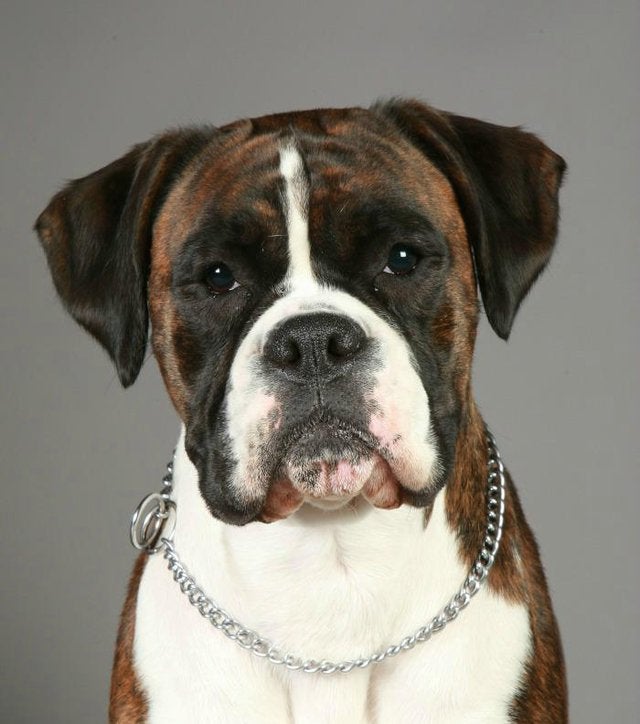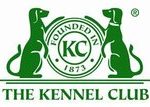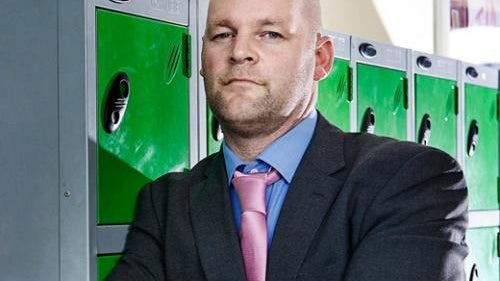Advice When Buying a Pedigree or Crossbreed

Whether you choose to buy a pedigree, crossbreed or purebred dog there are lots of things to bear in mind in order to ensure that you stand the best chance of getting a healthy, happy dog that is well suited to your lifestyle. There are also some important myths to bust.
Buying a Crossbreed Dog
Crossbreed dogs such as ‘Labradoodles’ (Labrador and Poodle cross - pictured below), ‘Cockapoos’ (Cocker Spaniel and Poodle cross) and ‘Jugs’ (Jack Russell and Pug cross) are becoming increasingly popular. They can make wonderful family pets, but too many people are buying them purely because they like the way that they look, or because they have a quirky sounding name.
However, this doesn’t always mean that the dog will be a good fit for your lifestyle. It is important to remember that a crossbreed is not as predictable as a purebred dog. You don’t know which characteristics it will inherit from each of its parents. In the case of the Labradoodle, this may mean that you get a puppy with a fleece, hair or wool coat or with a curly or a straight coat, depending on what they inherit from the Poodle and the Labrador. Similarly, if you choose a crossbreed that is a mix of two breeds that are very different you cannot be sure which will come through.
There have been an increasing number of health concerns about crossbreeds, not least because too many irresponsible breeders are cashing in on the crossbreed craze and selling the myth that crossbreeds are automatically healthier, so they don’t need to health test their dogs. This is not true. Whilst crossbreeds have a wider gene pool than pedigree dogs, any dog can become ill and it is important that you buy from a responsible breeder. If you buy a crossbreed you should check the health test results for both of the parents in the same way as you should for a pedigree dog.
Buying a Pedigree Dog: What does Kennel Club registration mean and why does it matter?

Know your dog’s roots
A pedigree dog registered with the Kennel Club is a purebred dog that comes with paperwork that confirms its heritage. The Kennel Club registers around 250,000 dogs in the UK every year; it keeps a comprehensive family tree of approximately a quarter of the dogs in this country. This family tree helps to ensure that puppy buyers get a true purebred dog, with the characteristics and care requirements they were led to expect from a dog of that breed. This includes their exercise and grooming needs, temperament and health conditions to test for. This helps to ensure that people are matched to dogs they are able to care for, hopefully preventing the need to re-home.

Information at your fingertips
Sadly, some breeders fake paperwork, such as the health test certificates for their puppies’ parents. These certificates should give a good indication of the likely health of the puppy. If you buy a genuine Kennel Club registered dog, this information is transparent, verified and at your fingertips. You can find it on the Kennel Club Health Test Results Finder site. This helps people to see whether the breeder they are buying from is responsible and has taken the necessary steps to help ensure the future health of their puppies.

Help future generations
Not only does Kennel Club registration help you to make informed choices about your own puppy; it also helps future generations of dogs. The Kennel Club holds lots of information about the dogs on its register, including the results of any DNA tests or BVA/KC approved health screening tests that they have been given. This information is used by scientists at the Kennel Club Genetics Centre to understand more about dog diseases, and create DNA tests to help prevent. Scientists have already developed DNA tests for diseases that affect 29 dog breeds. This means that breeders can test dogs before they breed them, to give a better chance of producing healthy puppies.
Additionally, the Kennel Club has developed an online Mate Select programme, which uses the Kennel Club’s extensive pedigree records to calculate a dog’s inbreeding coefficients ie the chances that a dog will inherit the same copies of genes, whether ‘good’ or ‘bad’ from both its parents. If two identical copies of ‘bad’ genes are inherited, that dog will be affected by the condition. Therefore, the higher the dog’s inbreeding coefficient, the greater the chances of this happening. Mate Select enables breeders to carry out an online hypothetical mating so they can see the inbreeding coefficient of a puppy that a bitch and a sire would produce, so that they can decide whether or not it is an advisable mating.

Help to stamp out Puppy Farming
Puppy farming is a cruel and abhorrent trade, where breeders churn out large volumes of puppies for money and without regard for their welfare. The puppies are kept in appalling conditions and will often suffer from behavioural or health problems later in life. The breeding bitches are often shot after a lifetime of neglect.
The Kennel Club has regulations in place to help ensure that dogs registered with it do not come from puppy farmers. Breeders need a breeding licence from their Local Authority if they breed five or more litters in a year and the Kennel Club will not register puppies from those who breed this number unless they have one. This should mean that you are not buying from a puppy farmer and not fuelling the cruel trade.
Sadly, over-stretched Local Authorities still grant licences to puppy farmers. The Kennel Club has to rely on the Local Authority licensing regime as it does not have powers to inspect all breeders’ premises itself. Therefore, it urges anybody who has concerns about a breeder to let it know. It will then take this up with the relevant authorities so that action can be taken against those who are not above board.
As an additional measure the Kennel Club will refuse to register more than four litters from a bitch in its lifetime; the current legal limit is six. This is to protect the welfare of breeding bitches.

Help throughout your dog’s life
Taking on a dog is a big responsibility and new puppy owners need all of the support that they can get throughout their dog's life. The Kennel Club has a plethora of information and services for those who buy puppies registered with the Kennel Club. This includes training through the Kennel Club Good Citizen Dog Training Scheme and information about immunising, insuring and exercising your dog along with general care. My KC gives puppy owners their own online account. It sends them alerts and reminders that will help them to know, for example, when to start training their puppy, links to local classes and about dates for crucial veterinary checks.
Choosing a breeder of a Kennel Club registered puppy

Be warned of fakes!
Dishonest people can easily fake paperwork. Many people sell their dogs with fake Kennel Club pedigrees but would never actually consider paying the cost of a registration fee. It is quick and easy to find out whether a dog is truly registered with the Kennel Club, so check your potential puppy online, before you buy!
Even if you have verified that your dog is registered with the Kennel Club there are still steps that you should take to ensure you pick the best breeder. Remember:

Check the health tests.
The Kennel Club Health Test Results Finder allows you to see whether your breeder has given their dogs the recommended health tests for their breed before they breed from them. This will give you an idea about the likely health of your puppy. This is one part of the Kennel Club’s Mate Select Service www.mateselect.org.uk

ABS is Best!
The Kennel Club strongly recommends that people buy a registered pedigree puppy from one of its Kennel Club Assured Breeders. When you buy from a KCAB you are not just buying a puppy that is registered with the Kennel Club but you are buying from a breeder that is registered and certified by the Kennel Club as well. Members of the scheme must agree to follow responsible steps. These include ensuring that their pups are socialised and kept in a clean and safe environment. They will not be allowed to register pups from parents that have not had the required health tests. Additionally, all must have their premises inspected by the Kennel Club before joining the scheme, and at least every three years thereafter. The Kennel Club has UKAS (United Kingdom Accreditation Services) accreditation to certify members on the scheme, meaning that it is a robust and impartial assessor.
A list of Kennel Club Assured Breeders can be found here and the puppies that come from Kennel Club Assured Breeders are clearly marked at the top of any search for Kennel Club registered puppies on its Find A Puppy website www.findapuppy.org.uk
The Kennel Club is the UK's largest organisation dedicated to protecting and promoting the health and welfare of all dogs.








